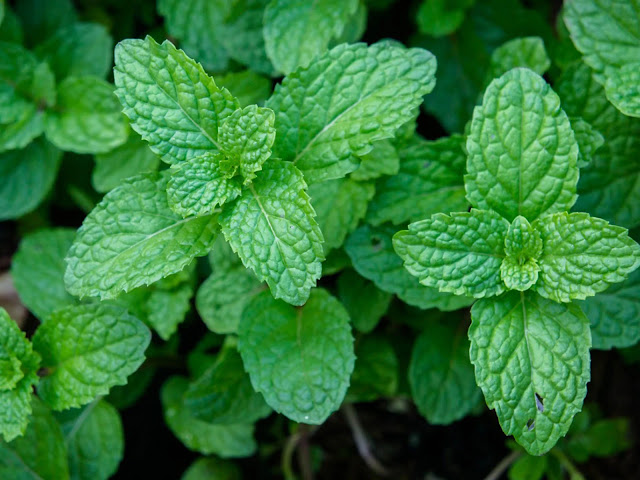Peppermint (Mentha piperita) is a hybrid plant that is a cross between watermint and spearmint. It is native to Europe and is now widely cultivated around the world. The plant has bright green leaves and small purple flowers, and it is known for its strong, fresh, minty aroma.
Peppermint is used for a variety of purposes, both culinary and medicinal. In cooking, it is often used to flavor sweets and desserts, as well as teas and other beverages. Medicinally, it has been used for centuries to treat a range of ailments, including digestive problems, headaches, and respiratory issues.
One of the main health benefits of peppermint is its ability to help soothe digestive problems, such as indigestion, nausea, and bloating. Peppermint contains menthol, which is a natural antispasmodic, meaning that it can help to relax the muscles in the digestive tract and reduce discomfort. It is also a natural carminative, meaning that it can help to expel gas from the gut, making it a popular remedy for bloating and flatulence.
Peppermint is also commonly used to treat headaches and migraines. Its natural analgesic and cooling properties can help to relieve pain and reduce inflammation, making it an effective remedy for headaches and migraines. Some studies have shown that the menthol in peppermint can also help to improve blood flow to the head, which can further reduce headache symptoms.
In addition to its digestive and headache benefits, peppermint is also commonly used to treat respiratory problems, such as coughs, colds, and asthma. Its natural decongestant properties can help to clear mucus from the respiratory tract, making it easier to breathe. It is also a natural antiseptic, meaning that it can help to kill germs and bacteria in the respiratory tract, reducing the risk of infection.
Peppermint is also used in aromatherapy, as its strong, fresh aroma is believed to have a calming and relaxing effect on the mind and body. Inhaling the scent of peppermint is thought to help reduce stress, improve mood, and boost energy levels.
When using peppermint for medicinal purposes, it is available in various forms, including essential oil, tea, capsules, and tinctures. Essential oil is the most concentrated form of peppermint and is often used for aromatherapy and massage, while tea and capsules are used to treat digestive and respiratory problems. Tinctures are used to treat headaches and migraines.
It is important to note that while peppermint is generally safe and well-tolerated, it can cause side effects in some people, particularly if used in high doses. It is also important to talk to a doctor before using peppermint for medicinal purposes, especially if you have any underlying health conditions or are taking any prescription medications.
In conclusion, peppermint is a versatile and beneficial herb that has been used for centuries for a variety of purposes, both culinary and medicinal. With its ability to soothe digestive problems, treat headaches and migraines, and treat respiratory problems, it is easy to see why peppermint remains one of the most popular and well-loved herbs in the world.









0 Comments